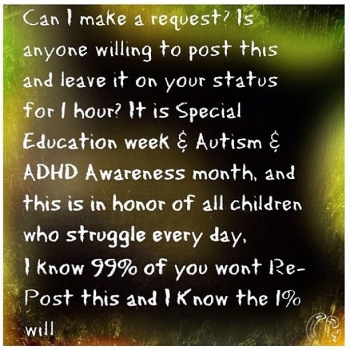Autism Spectrum Disorders- What You Need to Know

Autism is one medical condition which affects millions of children worldwide. It is related to early brain development, which hinders common growth of mental abilities in a child. A child with autism remains unaware of his or her surroundings. He or she faces difficulties in connecting to the social world. Autism can impair the child’s speech and locomotive abilities, affects communication and language and develops discontent behavioral pattern. In our society it is still considered a taboo, which makes it even more important to spread awareness about the problem. Parents of a child with autism are required to have special education to deal with the needs of their special child.
What are Autism Spectrum Disorders?
In layman’s term we can describe Autism Spectrum Disorders as culmination of several autistic symptoms or a group of brain development disorder. A child with autism may have multiple functional impairments, subnormal intelligence, disturbed sleep pattern, gastronomical problems, seizures, motor abnormalities, immune dysfunction etc.
A child with Autism Spectrum Disorders may have some or all of the autistic symptoms.
Diagnosing Autism Spectrum Disorders or ASD
Autistic symptoms in one may occur one after another. For that reason it is regarded a continuum of related disorder or ASD. Currently, ASD is diagnosed following the guidelines penned in the Diagnostic and Statistical Manual of Mental Disorders, Fourth Edition - Text Revision (DSM-IV-TR). The manual recognizes five disorders to be collectively termed as ASD. These are:
• Autistic Disorder or else known as (Classic Autism)
• Asperger's Disorder or otherwise known as (Asperger Syndrome)
• Pervasive Developmental Disorder
• Rett's Disorder (Rett syndrome)
• Childhood Disintegrative Disorder (CDD)
According to various studies, Autism is the most common mental disorder in children affecting one out of every eighty-eight children born worldwide. But medical researches couldn’t yet answer the question ‘what causes autism?’ It is believed that both genes and environment have important roles to play in developing autistic syndromes in some children.
It has been observed during studies that in identical twins if one sibling has autistic syndrome then in 90% cases the other one too develops it. However, in many cases it has been seen that a child that develops autism has no previous family history of the disorder to cite high risk – making it almost a random occurrence. Doctors are of the opinion that gene mutation coupled with environmental factors increases one’s exposure to the disorder. Environmental factors like – the mother’s habitat, habits, health and nutrition level during pregnancy may increase the chances of autism in the child.
Treatment of ASD
Some diseases at a very early age can also develop autism in the baby. That is why doctors suggest that the child should receive certain vaccine against infectious diseases such as – measles during their first few years of life. Regular health checkups and vaccinations can help building immunity in the child that can help curbing the symptoms.
